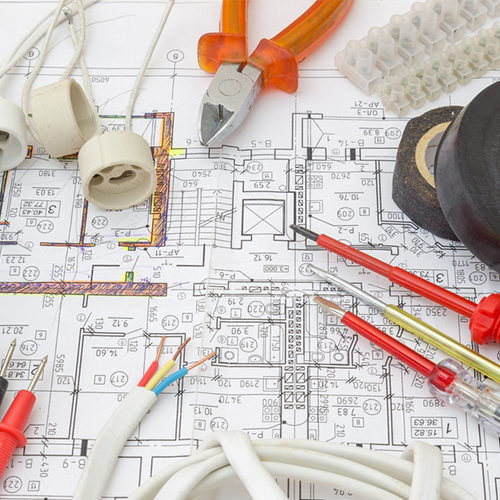Rewiring a property is essential for ensuring its safety, efficiency, and compliance with modern electrical standards. This is a process that involves replacing outdated or faulty wiring systems with new ones to meet the demands of contemporary electrical appliances and usage patterns. This can be very important for both commercial and residential properties.
What does rewiring a property involve?
The process will begin with a thorough assessment of the property’s existing wiring infrastructure. This evaluation helps to identify any potential hazards, such as frayed wires, overloaded circuits, or inadequate grounding. Once the assessment is complete, a comprehensive plan will be developed to address the specific needs of the property, as well as any updates you would like to make.
Rewiring itself typically involves removing the old wiring and installing new cables, sockets, switches, and distribution boards. Here at Walker Electrical, we follow established safety protocols and building codes to ensure the work is done correctly and safely. This may include upgrading the electrical panel to accommodate increased power demands, especially in older properties with outdated systems.
What are the main reasons for rewiring a property?
One of the most common reasons for rewiring is to enhance safety. Over time, wiring can deteriorate due to wear and tear, corrosion, or rodent damage. All of this can increase the risk of electrical fires and electric shocks. However, by replacing old wiring with modern, insulated cables, you can dramatically reduce the chances of such hazards, which provides peace of mind and building security.
In addition, rewiring allows for the incorporation of advanced technologies and energy-efficient solutions. This may include installing smart home systems, energy management devices, and LED lighting, which can not only improve convenience but also reduce electricity consumption and utility costs in the long run.
For more information or advice, get in touch with the professionals today, here at Walker Electrical.
